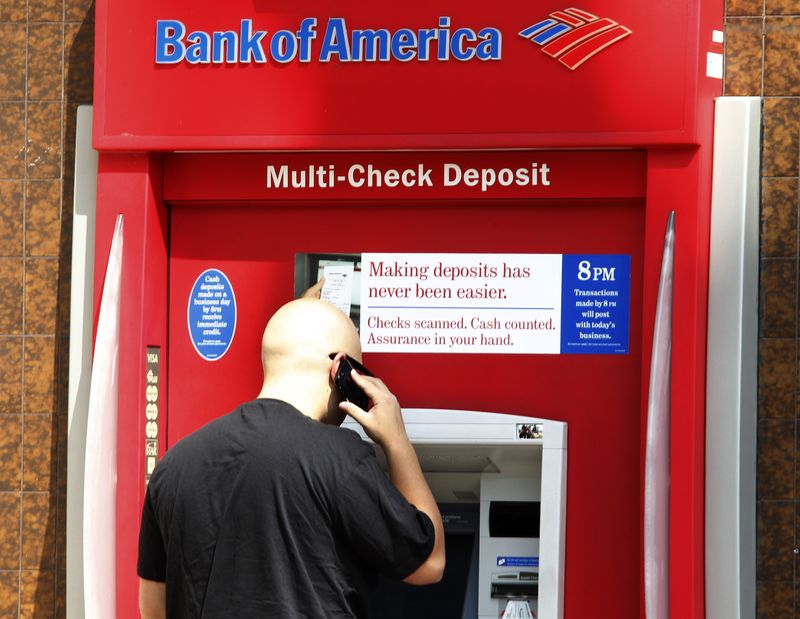(Reuters) - U.S. consumer credit and debit card spending so far in 2022 is up 15% on a year earlier, Bank of America (NYSE:BAC) research showed on Wednesday, a sign that Americans' gloom about the economy owing to high inflation has yet to translate into lower demand.
In fact, lower-income households - often described as the most vulnerable to an inflation-induced shock - are spending the most relative to their prepandemic outlays, the bank's researchers found.
To be sure, Bank of America Institute researchers said some of that group's spending will reflect high inflation, with March's consumer price index registering an 8.5% year-over-year increase, the highest in over 40 years. Also, such households typically spend a higher share of their budgets on food, gas and utilities, which contributed most heavily to the CPI increase.
"But the level of card spending in this group is still way above pre-pandemic levels: the very latest Bank of America debit and credit card spending per household data shows card spending up 33.3% among the below $50K group in three years to the week of 9th April," they wrote.
Card spending this year through April 8 was 15% higher than in the same period last year.
Surveys such as the University of Michigan's widely followed Consumer Sentiment Index have painted a picture of U.S. consumers who are the most distressed about the economy in more than a decade, often a signal that they may rein in spending.
"But people don't always actually do what they say they are doing – sentiment is not the same as action," the bank wrote.
"The actual hard data does not support the gloom."
Data from the Census Bureau due out on Thursday in fact is expected to show U.S. retail sales rose 0.6% in March from the month before, a Reuters poll of economists shows, which would mark an acceleration from February's increase of 0.3%.
Monthly growth in retail sales averaged 1.4% over the 12 months through February, more than three times the rate that prevailed in the year before the pandemic.
Bank of America researchers attributed the ongoing strength in large part to the U.S. job market. The unemployment rate is 3.6% - roughly where it was before the pandemic - there are nearly two open jobs for every unemployed person and hourly wages are rising at their fastest in years, at an annual rate of 5.6%.
"(B)eneath this already rosy picture, the story is even better at the lower end of the wage distribution," they said. Wages in the lowest-paying industries such as leisure and hospitality are up 11.8% year over year.
Another factor continuing to prop up spending, especially among low-income households, is the cash remaining at their disposal. Bank accounts are still well stocked from higher wages and residual funds from repeated rounds of federal stimulus during the pandemic.

Households with incomes below $50,000 a year have at least $1,500 more in the bank than they did at the start of 2019, a figure that represents 5% of that income group's household spending that year.
"It is hard to reconcile high bank balances and high card spending with the idea that lower income households are being overwhelmed by higher prices," the researchers wrote.